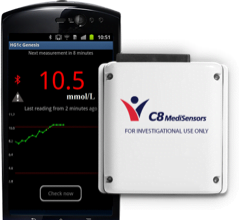Just a century ago we didn’t know about different blood types or the existence of vitamins. Today, stem cells are used to grow new organs, damaged organs are removed with remote robotic arms, and highly advanced 3D printers can create certain parts of the human body.
It is undeniable that medicine and healthcare are changing, now at a faster pace than ever. And today, we can boldly claim that the healthcare of tomorrow will be able to cure conditions that take the lives of many today.
If you are interested in learning what the future of healthcare looks like, keep on reading. Below you shall find visions and inspiring ideas that are gradually becoming a reality.
A better-connected future
Built in the middle of the 20th century, the healthcare of today is, in its essence, a sick-care system. Even though it did go through certain changes regarding medical diagnosis and treatments, care delivery has not changed structurally to a great extent.
What we mean by this is that people that are sick or acutely ill have to visit a brick-and-mortar facility to be looked at and treated by medical professionals. If you don’t feel well, the time between seeing your GP and actually receiving treatment is usually too long.
However, medical professionals are starting to learn from consumer industries. More and more people are now looking at healthcare from the perspective of the patient.
The first step would be to help the patient better understand what impacts their chronic condition so they can have a more active role in managing it. In other words, the goal is to keep the patient healthy rather than only react to their illness.
Furthermore, one should not just tell a patient what they should or should not do. For instance, most smokers already know that smoking is bad for them. Instead, doctors need to engage patients and provide them with smart technology so they can closely monitor themselves.
Devices that can measure the heart rate, blood pressure, breathing, weight, and activity levels are already there. So it is only a matter of time when the healthcare system will recognize that it is time to take full advantage of them.
The data gathered like this can be transformed into meaningful information that can be helpful to both doctors and patients. This kind of data can predict if something bad is going to happen, like a stroke or a fall, and help prevent fatal scenarios.
Still, this is only the beginning of a better-connected future of healthcare. One day, people will have a constant connection established between themselves and the doctors monitoring them. Chronic patients live with their conditions at all times, and healthcare should reflect that too.
Many notable individuals have suggested this path for the future. One of them is Jeroen Tas, the chief executive of Connected Care & Health Informatics at Philips.
One of the innovations that will make this possible is certainly FHIR. This is a system that keeps electronic health records, digital health applications, and other important health-related details in one place so that both the patients and the doctors can easily access it when necessary.
If you want to learn more about FHIR, there is a great article by Prolifics that you can read on this topic. And once you do, you will clearly understand why such a system is a great solution to some problems healthcare is facing today.
A future focusing on effective heart disease prevention
It is fair to say that the world has made significant advances when it comes to combating cardiovascular disease in the past 50 years. The number of deaths has fallen, there is no doubt about that. For example, there are many surgical methods and medications that can help prevent heart failures.
However, just because things are looking better now, it doesn’t mean that the research should stop. Nowadays, we have initiatives that look to identify the causal genetic risk-factors that lead to some individuals developing cardiovascular disease.
Another area that is being looked into is finding the medications that target the newly discovered mechanisms that cause the disease.
Now, when it comes to the near future, it is clear that wearable technology will play a significant role in preventing cardiovascular diseases.
As it was mentioned, the focus shall be placed on gathering and analyzing large amounts of data. This can help support more personalized medicine where treatment will be tailored individually to the patients.
Easier (robotized) retirement
No one can stop and turn back the clock. Unfortunately, time goes by and there’s nothing you can do about it.
As people age, it becomes important to help them live out their lives smoothly until the very end. The emphasis these days is to help people live independently for a longer time. Once that is no longer possible, professionals have to step in.
Fortunately, nowadays there are advances even in this field. And they are related to robots.
One great innovation that needs to be mentioned is the companion robot concept. These robots can move around, you can talk to them and they will respond. They can also do some tasks that would normally require an elderly person to invest a lot of effort.
This kind of robot is not only useful since it can carry out simple tasks, but it is also great when it comes to the psychological side of things.
Many elderly people claim that loneliness is the main issue in the late stages of life. But even though robots cannot replace a person, they can have a similar role to that of a pet, which certainly helps.
A future for our lungs
This is a challenging time when we seriously consider the impact of respiratory diseases. Many lung-related conditions are increasing and this will remain a problem in the foreseeable future.
However, there is still some hope. To be precise, people will have better control over diseases that are now deemed untreatable such as some lung cancers and mesotheliomas.
The main reason why experts predict this is because of immunotherapy. Immunotherapy relies on a person’s own immune system to fend off a disease rather than relying on radiotherapy, chemotherapy, or surgery.
Unfortunately, there is also a notion that even though there will be new medicines and treatments available thanks to the advances we make, many won’t be able to afford them or have access to them.
Finally, some experts such as professor John Moore-Gillon, predict that in 10 years’ time there will be an effective vaccine for asthma. It is going to be expensive to develop, but it will be worth it in the end.








